גלובל החיפוש לחינוך: The Master – רנה פלמינג
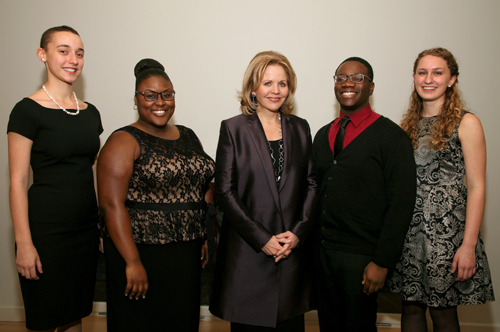
“מחקר אחרי מחקר הוכיח כי אמנויות חינוך מפתחת סטודנטים’ יצירתיות ויכולת פתרון בעיות, תכונות שהן קריטיים להצלחה בכל תחום כמעט.” — רנה פלמינג
L to R Vera Kahn, Nia Drummond, רנה פלמינג, Stephan Douglas-Allen, and Lindsey Knapp
Photo by Steve J. Sherman.
Four members of the Young People’s Chorus of New York City (the YPC), all aspiring to careers in music, sang for world renowned soprano Renée Fleming at a master class last week before an audience of supporters and fellow chorus members. “You’re in a master class with one of the world’s greatest singers – what’s it like?” I asked them. “Intimidating at first,” comments Lindsey Knapp. “She put my abstract thoughts into words; she focused me,” adds Vera Khan. “I wanted to do my best,” explains Stephan Douglas-Allen. “Renée Fleming is my favorite opera singer of all time; she was the perfect master class teacher,” concludes Nia Drummond.
The YPC audience at this master class would agree with Nia. Renée Fleming is all at once personable, nurturing and extremely knowledgeable on what it takes to achieve artistic excellence in her world of music. Opera is a serious art form. Singers study for many years in pursuit of developing voices that are classic, vibrant and unique. During this time their instruments and artistic ability to connect with small and large audiences will be tested in many different languages, without the aid of any electronic amplification and by possibly the most diverse range of music known to any kind of singer. The YPC students impress us with arias from Ralph Vaughan Williams, Franz Schubert, Henry Purcell, Eden Ahbez, Hugo Wolf and Stevie Wonder. “In school when the class talks about contemporary composers, I can say I have worked with them,” comments Vera Kahn. “Being exposed to this music helps me see the connections between contemporary classical music and music by composers like Mozart.”
For decades, researchers have studied the benefits of music education and consistently found strong correlations between music and student outcomes. In the last few years, Renée Fleming has also been focusing her energies on classrooms and becoming an advocate for arts education. As a creative consultant for the Lyric Opera of Chicago, her projects with schools include inspiring and mentoring students and conducting voice lessons. I was pleased to have the opportunity to discuss with the master teacher why music education is so vital for young people in today’s world.
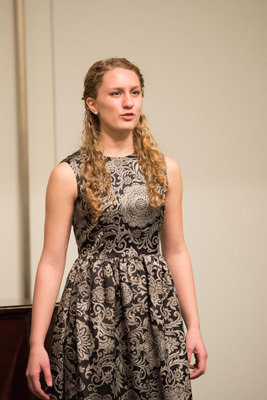
“Depending on their age and experience, what we address can vary a lot, from very basic breath support to the finer nuances of the meaning of a lyric.” — רנה פלמינג
Photo by Christopher Hall.
Describe for us briefly what happens in your master class?
Each student performs a song or aria, with piano accompaniment. בְּדֶרֶך כְּלַל, I’ll hear the whole piece straight through to give the student a chance to show their performance skills. I can then get a good idea of ways to be helpful, whether it’s technique, interpretation, diction, or presentation. We’ll go back through the music, usually from the beginning, and work on problems or areas that could improve. כמובן, depending on their age and experience, what we address can vary a lot, from very basic breath support to the finer nuances of the meaning of a lyric. With an audience present, this is an educational opportunity for them, מדי, so I try to include them as I work with the student.
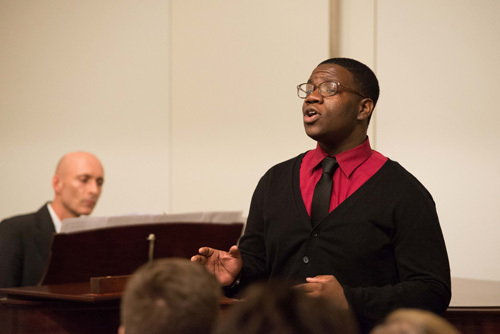
“Arts education needs to be part of the core curriculum in schools, for so many reasons, not the least of which are academic achievement and student outcomes.” — רנה פלמינג
Photo by Christopher Hall.
Why do you believe a music education is so important for young people today?
The importance of music, and arts education in general, goes far beyond the obvious benefit of nurturing our cultural life and passing on our artistic heritage. I saw an op-ed piece last month that listed a who’s who of world leaders in everything from politics, to business, to science – all of whom studied music when they were young. Arts education needs to be part of the core curriculum in schools, for so many reasons, not the least of which are academic achievement and student outcomes. מחקר אחרי מחקר הוכיח כי אמנויות חינוך מפתחת סטודנטים’ יצירתיות ויכולת פתרון בעיות, attributes that are crucial for success in almost any field. כמו כן, by keeping children engaged and interested, arts education helps kids stay in school. And maybe the most basic benefit is the expressive outlet the arts can give a child. Having some kind of artistic expression allows them to form a sense of self- to find their voice, כביכול.
When Damian Woetzel, Yo-Yo Ma and I worked with the Chicago Public Schools to help launch their Arts Education Plan, we had these benefits in mind. The plan is groundbreaking, and shows a major commitment on the part of the city. It includes standards for classroom time each week dedicated to arts education, an arts liaison in each school, school scorecards for arts activities and opportunities, and engagement of community arts institutions.
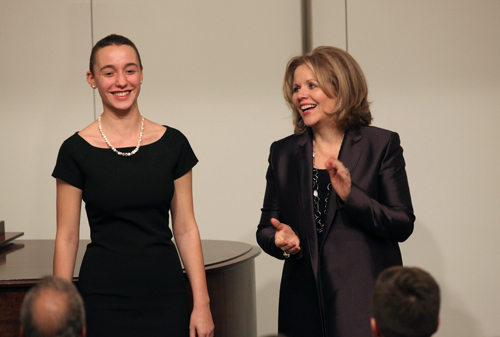
“I love face-to-face interaction with students. Having grappled with the same issues that they face, if I can alert them to areas that might need more work, either on their own in the practice room, through online research, or with a teacher, I feel I have helped.” — רנה פלמינג
Photo by Steve J. Sherman.
What did an arts education give you?
I was really fortunate, both at home and at school, to have a fantastic arts education. ראשון, both of my parents were public high school vocal music teachers, so music was like air in our household. But we also had great arts programs in the public schools in Rochester, ניו יורק, when I was growing up. I was a naturally shy girl who was happy to be off somewhere with a book – it was through the expressive outlet of composing and singing songs with a guitar that I first began to develop a sense of who I was as a person. I participated in a local composition program for a handful of students throughout Rochester, which was tremendously inspiring to me, and gave me a lifelong interest in new music.
The commitment to arts education in the schools dwindled in the past decades, but I’m really encouraged by what is happening in Chicago. I think that we may have turned a corner, and that people are beginning to understand the importance of the arts in our children’s lives.
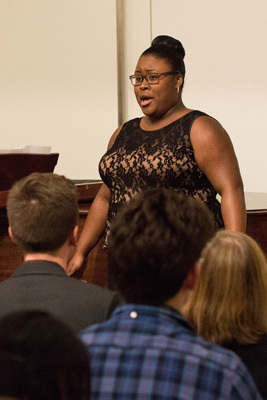
“Maybe the most basic benefit is the expressive outlet the arts can give a child. Having some kind of artistic expression allows them to form a sense of self – to find their voice.” –רנה פלמינג
Photo by Christopher Hall.
Technology continues to drive more learning experiences online. מה דעתך על זה? What do you hope to accomplish in your face-to-face master class with the students?
I have actually been able to conduct some master classes via Skype, and they were helpful. I do believe that arts education, like all forms of study, should embrace and exploit the opportunities that the Internet and newer technologies offer. You Tube has become a fantastic teaching tool now, because of the wealth of video material available. One can learn so much from watching other singers. And you can research music instantly, accessing repertoire in moments that, בעבר, it would have taken hours to find in a library, if it was even there.
But I love face-to-face interaction with students as well. Having grappled with the same issues that they face, if I can alert them to areas that might need more work, either on their own in the practice room, through online research, or with a teacher, I feel I have helped. Master classes can also be valuable for increasing students’ comfort level on stage, because the audience loves to see young artists make discoveries. Instead of just giving a performance, by working on their art while an audience watches, apprehensive students can get more accustomed to being in front of an audience, and confident performers can even develop a sense of the audience as an ally in their process.
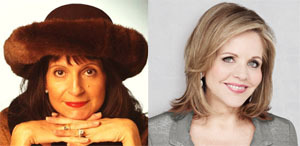
Photos are courtesy of Andrew Eccles, Steve J. Sherman and Christopher Hall.
For more information on YPC: http://www.ypc.org/
בגלובל החיפוש לחינוך, להצטרף אליי ולמנהיגי מחשבה מוכרת בעולם כולל סר מייקל ברבר (בריטניה), DR. מיכאל בלוק (ארה"ב), DR. ליאון בוטשטיין (ארה"ב), פרופסור קליי כריסטנסן (ארה"ב), DR. לינדה דרלינג-Hammond (ארה"ב), DR. Madhav אוון (הודו), פרופ 'מיכאל Fullan (קנדה), פרופ 'הווארד גרדנר (ארה"ב), פרופ 'אנדי הארגריבס (ארה"ב), פרופ 'איבון הלמן (הולנד), פרופ 'קריסטין Helstad (נורווגיה), ז'אן הנדריקסון (ארה"ב), פרופ 'רוז Hipkins (ניו זילנד), פרופ 'קורנליה הוגלנד (קנדה), הכבוד ג'ף ג'ונסון (קנדה), גברת. שנטל קאופמן (בלגיה), DR. Eija Kauppinen (פינלנד), מזכיר המדינה Tapio Kosunen (פינלנד), פרופ 'דומיניק לפונטיין (בלגיה), פרופ 'יו לאודר (בריטניה), פרופ 'בן לוין (קנדה), לורד קן מקדונלד (בריטניה), פרופ 'בארי McGaw (אוסטרליה), שיב נדאר (הודו), פרופ 'R. נטריגין (הודו), DR. PAK NG (סינגפור), DR. דניז אפיפיור (ארה"ב), שרידהר ךאג'גופלן (הודו), DR. דיאן ראוויטש (ארה"ב), ריצ'רד וילסון ריילי (ארה"ב), סר קן רובינסון (בריטניה), פרופ Pasi Sahlberg (פינלנד), פרופ Manabu סאטו (יפן), אנדריאס שלייכר (PISA, OECD), DR. אנתוני סלדון (בריטניה), DR. דוד שפר (ארה"ב), DR. קירסטן Immersive Are (נורווגיה), קנצלר סטיבן ספאן (ארה"ב), איב Theze (Lycee Francais ארה"ב), פרופ 'צ'רלס Ungerleider (קנדה), פרופ 'טוני וגנר (ארה"ב), סר דייוויד ווטסון (בריטניה), פרופסור דילן Wiliam (בריטניה), DR. מארק Wormald (בריטניה), פרופ 'תיאו Wubbels (הולנד), פרופ 'מייקל יאנג (בריטניה), ופרופ 'Minxuan ג'אנג (סין) כפי שהם לחקור שאלות חינוך תמונה הגדולות שכל המדינות מתמודדות היום. גלובל החיפוש לחינוך עמוד קהילה
C. M. רובין הוא המחבר שתי סדרות מקוונות רבים קוראות שלהיא קיבלה 2011 הפרס אפטון סינקלר, “גלובל החיפוש לחינוך” ו “איך וויל אנחנו קראו?” היא גם מחברם של שלושה ספרים רבי מכר, כולל אליס בארץ הפלאות Real.


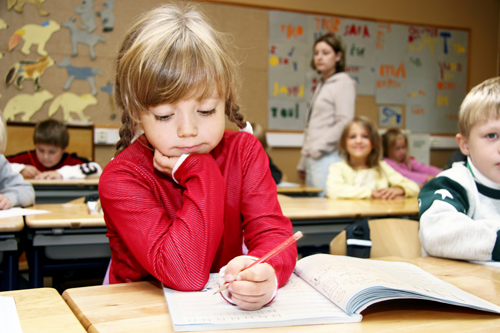
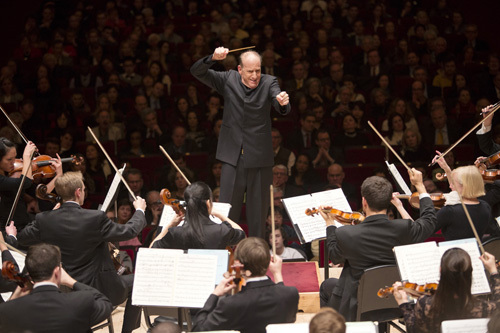
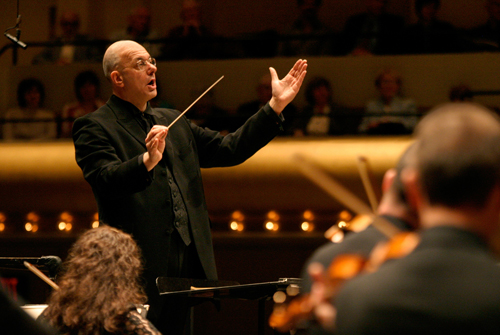
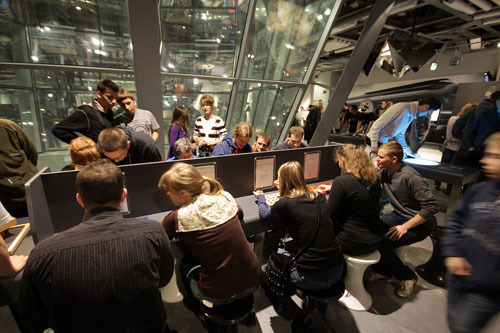
תגובות אחרונות